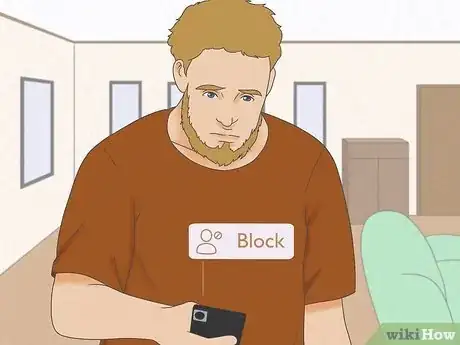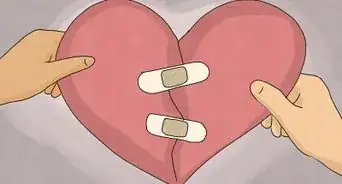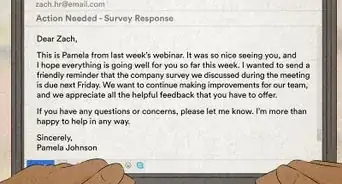This article was co-authored by Kelli Miller, LCSW, MSW and by wikiHow staff writer, Aly Rusciano. Kelli Miller is a Psychotherapist based in Los Angeles, California. Kelli specializes in individual and couples therapy focusing on relationships, depression, anxiety, sexuality, communication, parenting, and more. Kelli also facilitates groups for those struggling with alcohol and drug addiction as well as anger management groups. She is the author of “Professor Kelli’s Guide to Finding a Husband” and the award-winning and best-selling book “Thriving with ADHD”. Kelli co-hosted an advice show on LA Talk Radio and is a relationship expert for The Examiner. She received her MSW (Masters of Social Work) from the University of Pennsylvania and a BA in Sociology/Health from the University of Florida.
There are 7 references cited in this article, which can be found at the bottom of the page.
This article has been viewed 3,658 times.
It happened. You cheated on your partner, and you feel awful about it. It’s common to feel upset after you’ve cheated, but you don’t have to feel this way forever. Having cheater’s remorse means you’re an honest and respectful person. You can learn to forgive yourself and accept what’s happened. It won’t be easy, but we’ll be here to guide you every step of the way.
Things You Should Know
- Take responsibility for your actions, but acknowledge that there’s a reason why you cheated.
- Ask yourself “Why?” and “How?” to fully accept and move on from your actions.
- Be empathetic toward yourself and your partner because cheating hurts both parties.
Steps
References
- ↑ https://greatergood.berkeley.edu/article/item/the_healthy_way_to_forgive_yourself
- ↑ https://www.scientificamerican.com/article/why-do-people-in-relationships-cheat/
- ↑ https://hbr.org/2015/02/5-ways-to-become-more-self-aware
- ↑ https://www.betterhealth.vic.gov.au/health/healthyliving/relationships-and-communication
- ↑ https://greatergood.berkeley.edu/article/item/forgive_yourself_save_your_relationship
- ↑ https://www.psychologytoday.com/us/blog/striving-thriving/202207/how-forgive-yourself-self-compassion
- ↑ https://www.oprahdaily.com/life/relationships-love/a29535038/i-cheated-on-my-husband/
- ↑ https://greatergood.berkeley.edu/article/item/the_healthy_way_to_forgive_yourself




































































Medical Disclaimer
The content of this article is not intended to be a substitute for professional medical advice, examination, diagnosis, or treatment. You should always contact your doctor or other qualified healthcare professional before starting, changing, or stopping any kind of health treatment.
Read More...